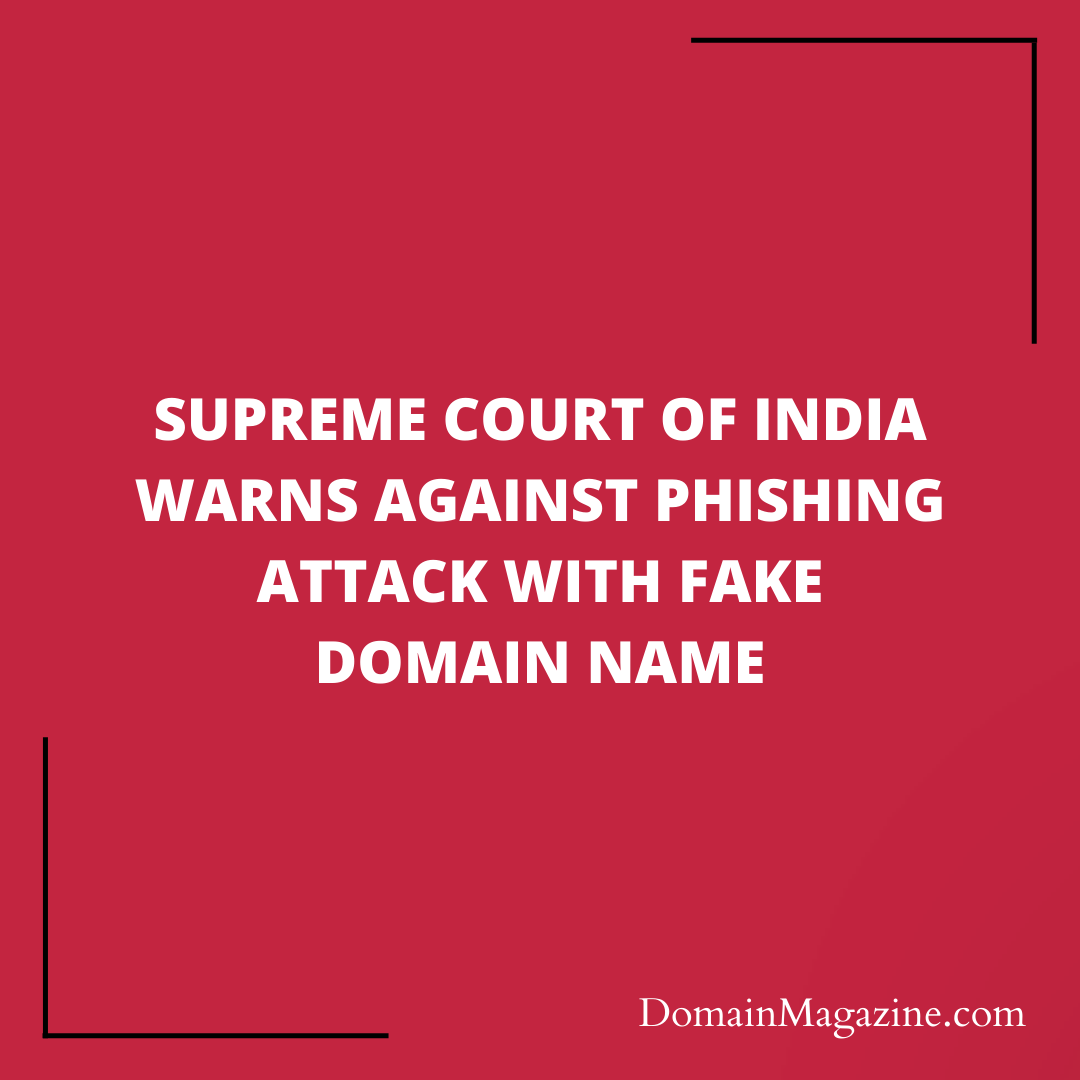In a significant development, the Supreme Court of India has issued a stern warning about a recent phishing attack that exploits a fraudulent domain name. On September 1, 2023, the Supreme Court’s registry issued a public notice alerting the public to a malicious website designed to impersonate the official Supreme Court website. This fraudulent website is hosted on URLs that may look deceptively authentic: http://cbins/scigv.com and https://cbins.scigv.com/offence. The individuals or groups behind this scam are actively seeking to pilfer personal and confidential information from unsuspecting visitors.

The Deceptive Domain Names
This alarming revelation underscores the audacity of cybercriminals who use convincing tactics to trick individuals. The fake website’s URLs closely resemble the legitimate Supreme Court website, which adds to the challenge of identifying such scams. This deceptive strategy further underscores the importance of meticulously verifying the authenticity of websites before sharing any personal or financial information.
Supreme Court’s Advisory and Authentic Domain Name
The Supreme Court has unequivocally advised the public not to divulge any personal or confidential information on the fraudulent website. Furthermore, they have urged individuals to exercise caution and ensure the legitimacy of websites they interact with online. It’s vital to note that the official domain name of the Supreme Court of India is www.sci.gov.in. Any deviation from this URL should raise suspicion.
Taking Action in Case of Compromise
If you fear that you may have inadvertently shared your personal or confidential information on the fake website, prompt action is crucial. First and foremost, change your passwords immediately for all your online accounts to thwart unauthorized access. Additionally, it is imperative to contact your bank or credit card company and report any suspicious or unauthorized transactions.
Collaborative Efforts Against Cybercrime
The Supreme Court of India has exhibited its commitment to safeguarding the interests of citizens by taking swift action against this phishing attack. The matter has been reported to law enforcement agencies, initiating a comprehensive investigation to trace and bring the perpetrators to justice.

Guarding Against Phishing Scams
Phishing scams are an ever-present threat in today’s digital landscape. The Supreme Court’s advisory serves as a stark reminder of the importance of remaining vigilant in the face of cyber threats. Here are some essential tips to help you protect yourself from falling victim to phishing scams:
Be Skeptical: Approach emails or websites requesting personal or confidential information with caution.
Avoid Unfamiliar Links: Refrain from clicking on links in emails or websites that you are not familiar with.
Verify Website Authenticity: Always verify the legitimacy of a website before providing any personal information.
Strong Passwords: Use strong, unique passwords and change them regularly.
Social Media Caution: Exercise discretion when sharing personal information on social media platforms.
Responding to a Phishing Scam
If you suspect that you have fallen victim to a phishing scam, take these immediate steps:
Change Passwords: Change your passwords promptly to protect your accounts.
Contact Your Bank: Get in touch with your bank or credit card company to report any unauthorized access or transactions.
Report to Cybercrime Authorities: Report the phishing scam to your local cybercrime police, helping in the collective effort to combat cybercriminals.
In a world where digital threats loom large, the vigilance of individuals and institutions alike is paramount. The Supreme Court’s proactive stance in addressing this phishing attack serves as a beacon of protection and underscores the need for unwavering diligence in safeguarding personal and confidential information online.


Join the Discussion